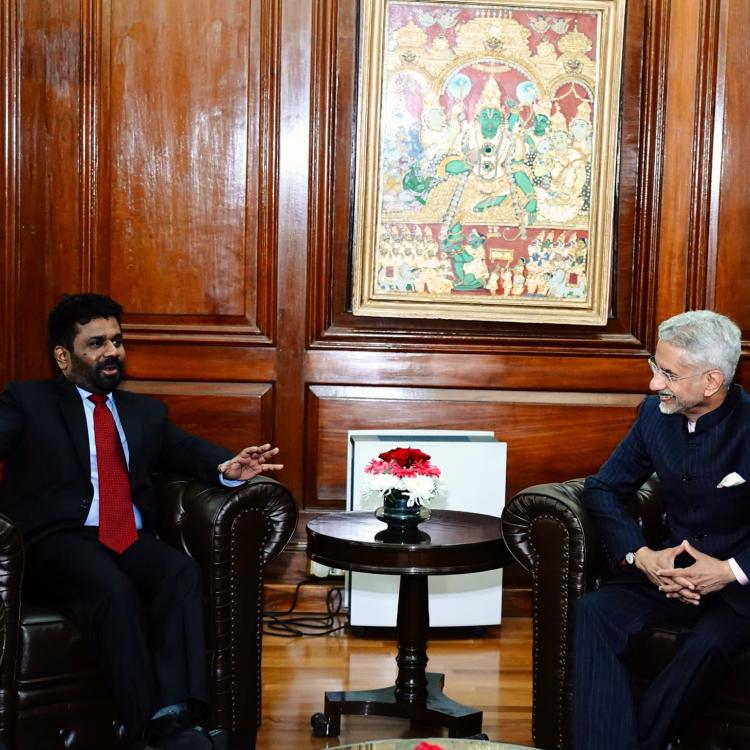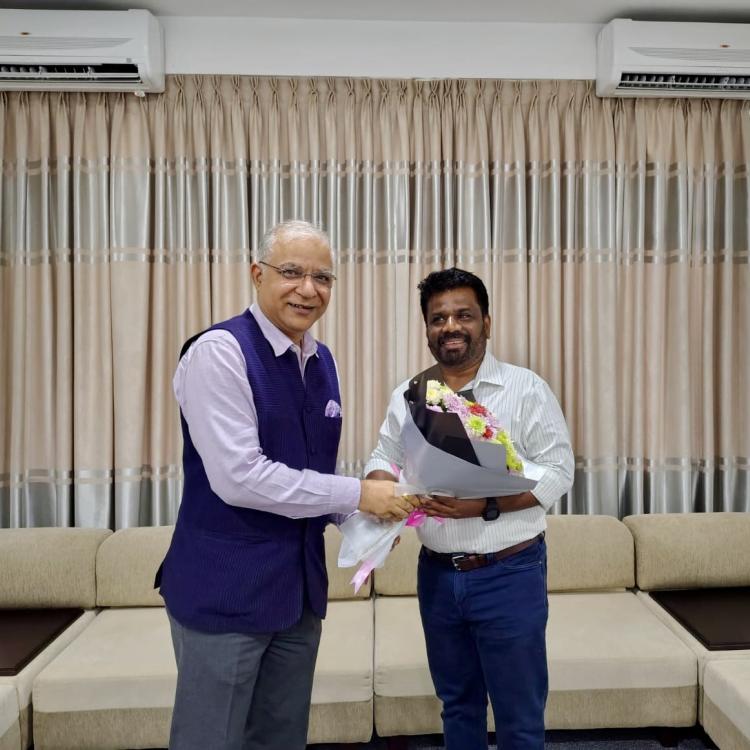.jpeg)
Sri Lanka’s President Anura Kumara Dissanayake made his inaugural overseas visit and met with Indian Prime Minister Narendra Modi in New Delhi this week, as the two discussed increasing cooperation in multiple sectors across the Palk Strait.
Strengthening economic ties
During their meeting earlier today, Modi emphasised India’s commitment to an “investment-led partnership” with Sri Lanka. “We have adopted a futuristic vision for our partnership,” Modi stated, highlighting key initiatives such as the Sampur Solar Power Project, LNG supply for Sri Lanka’s power plants, and accelerating the implementation of the Economic and Technological Cooperation Agreement (ETCA).
Modi also announced several grants, including funding to rejuvenate the railway signalling system between Maho and Anuradhapura and the Kankesanthurai Port, located in the Tamil-majority North. These projects were highlighted as part of India’s broader assistance to Sri Lanka, which has totalled $5 billion in grants and credit lines.
“We have been providing support to all 25 districts of Sri Lanka,” Modi noted.
Connectivity projects, particularly those linking Tamil Nadu and the Tamil North-East, took centre stage during the visit. “The Ferry Service and the Chennai-Jaffna flight connectivity have not only boosted tourism but have also reinforced cultural ties,” he said. “We have jointly decided that, post the successful launch of the Nagapattinam - Kankesanthurai Ferry service, we will also initiate a ferry service between Rameshwaram and Talaimannar.”
.jpeg)
Focus on Tamils
In a joint press conference held earlier today, Modi specifically addressed the lack of political solution for the island’s Eelam Tamils.
“We hope that the Sri Lankan government shall fulfil the aspirations of the Tamil people and fully implement the Constitution of Sri Lanka, including conducting Provincial Council Elections,” he stated.
In another apparent move targeting the island’s Tamils, Modi also announced India “will be providing monthly scholarships to 200 students of Jaffna and universities in Sri Lanka's Eastern region”.
While Modi highlighted progress in energy cooperation, including the solar power project in Sampur and plans for offshore wind projects in the Palk Strait, some Indian-backed initiatives face challenges under Dissanayake’s administration. Notably, the proposed wind power project in Mannar remains in limbo, with the Sri Lankan government postponing its decision until 2025.
Addressing the press meet with President @anuradisanayake of Sri Lanka. https://t.co/VdSD9swdFh
— Narendra Modi (@narendramodi) December 16, 2024
Assuring Indian security
Security cooperation featured prominently in discussions, with both leaders agreeing to finalise a Security Cooperation Agreement. Modi reaffirmed India’s role as a trusted partner for Colombo, noting joint maritime security operations and collaboration in counter-terrorism, cyber security, and humanitarian assistance.
Dissanayake meanwhile reiterated Sri Lanka’s commitment to ensuring its territory is not used against India’s security interests, a critical assurance given regional concerns over China’s expanding influence on the island. “I assured the Indian leader that Sri Lanka will not permit its territory to be used in any manner inimical to the security of India as well as towards regional stability,” he said in his address.
A change of heart for Dissanayake
Dissanayake’s visit is notable given the Janatha Vimukthi Peramuna’s (JVP) historical opposition to perceived Indian influence in Sri Lanka. The JVP’s stance peaked during the 1987 insurrection, fuelled by resistance to Tamil autonomy in the North-East and the presence of the Indian Peace Keeping Force (IPKF). Over decades, the party has opposed agreements like the Comprehensive Economic Partnership Agreement (CEPA) and denounced Malayaga Tamils as agents of “Indian expansionism.”
Dissanayake himself previously criticised Indian initiatives, including raising concerns in Parliament in 2008 over a "secret plot" to transfer the Katchatheevu islet to India. However, his decision to make India his first official destination as President marks a shift in tone, reflecting growing ties between the two neighbours.
“India has always been an integral part of the growth and development of Sri Lanka throughout history, from sharing the precepts of the Dhamma to being a partner in our developmental progress,” said Dissanayake earlier today.
“My visit to India today demonstrates these close and friendly ties that we have been enjoying since time immemorial… I wish to conclude by reiterating that Sri Lanka attaches great importance to the continuous development and deepening of cooperation with India, which I have no doubt would be further consolidated in the years to come.”
Read Modi's full remarks here, Dissanayake's remarks here and joint statement here.


